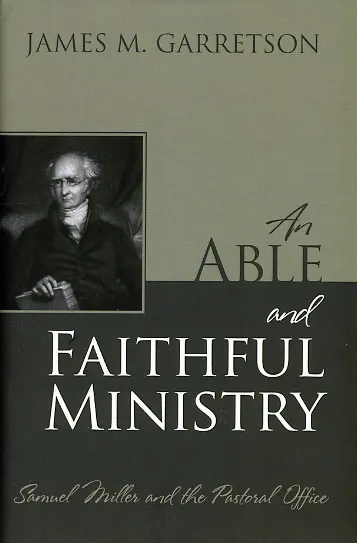AN ABLE AND FAITHFUL MINISTRY
Samuel Miller and the pastoral office
By James M. Garretson
Reformation Heritage Books. 425 pages. £20.65
ISBN 978 1 601 782 984
There has never been a shortage of books about the Christian ministry. So, when yet another one appears, one might rightly ask, ‘Why buy it?’ – especially if you happen to be a minister, or student, already too busy to read the books you have.
And, given the propensity in our day to look for the latest ideas on ministry, why bother with the counsel of someone from the 19th century? James Garretson’s work on the life and works of Samuel Miller gives good answers to both these questions.







